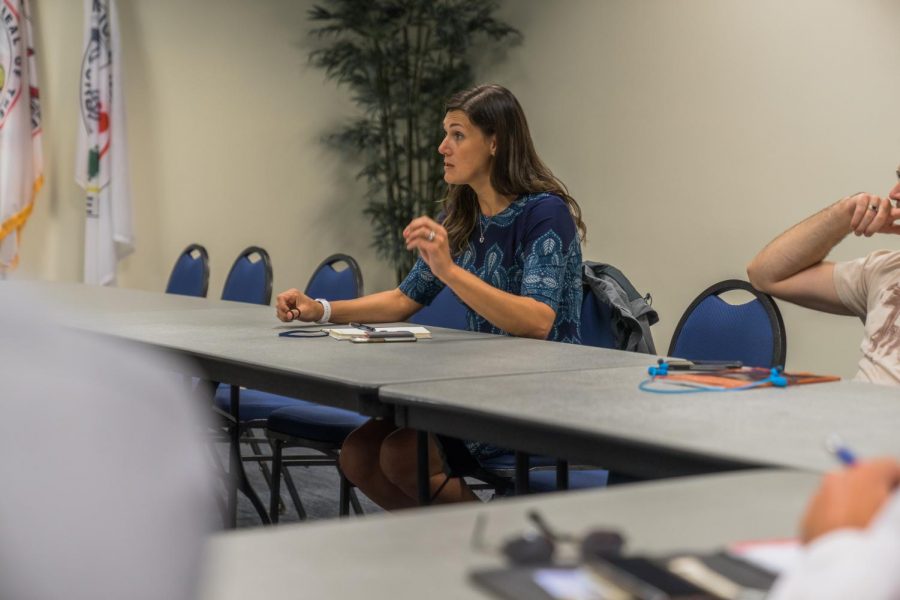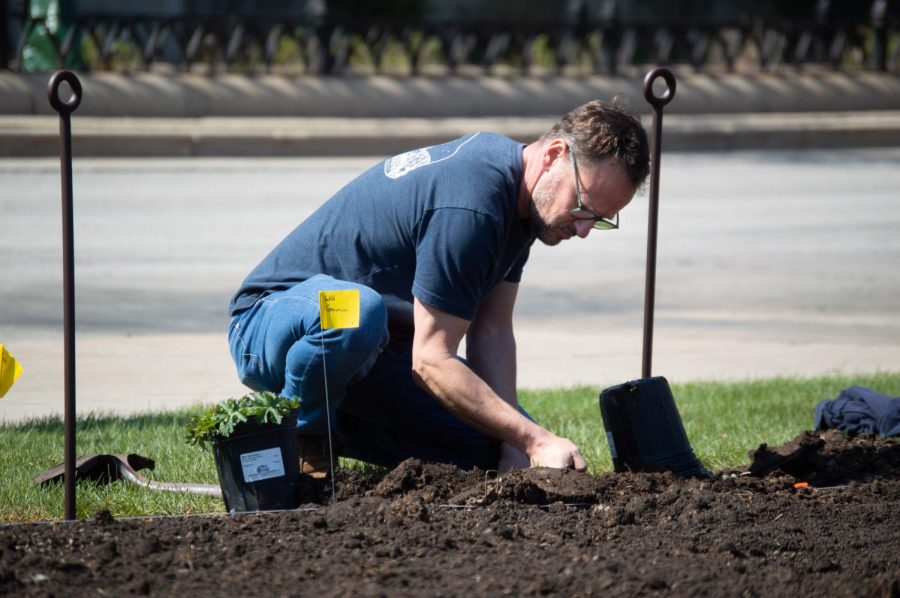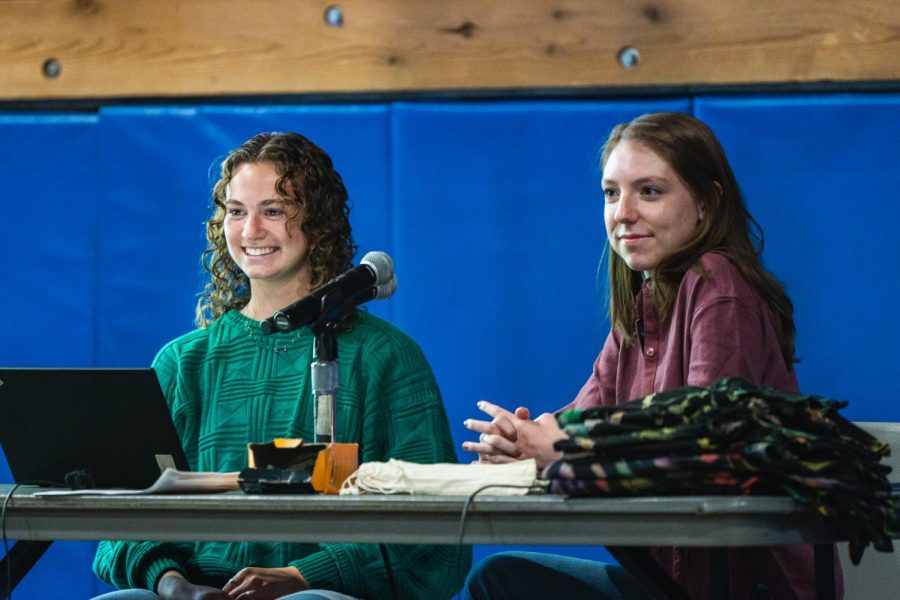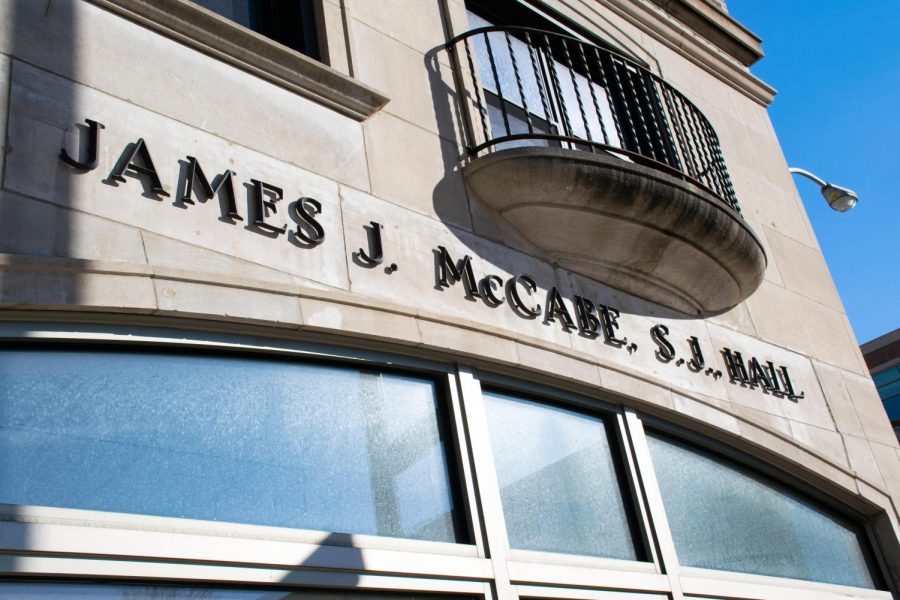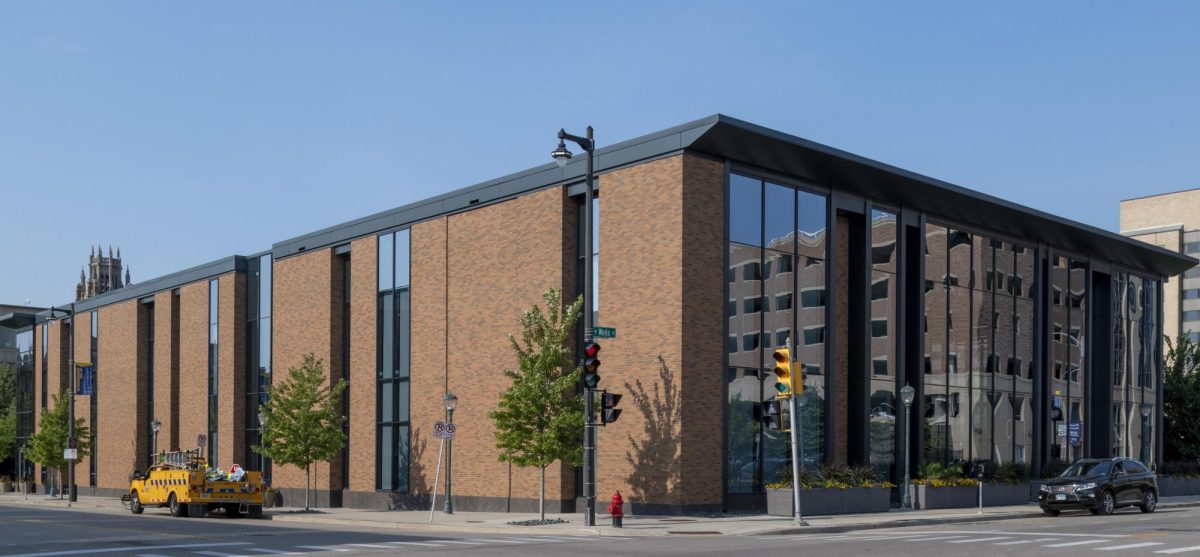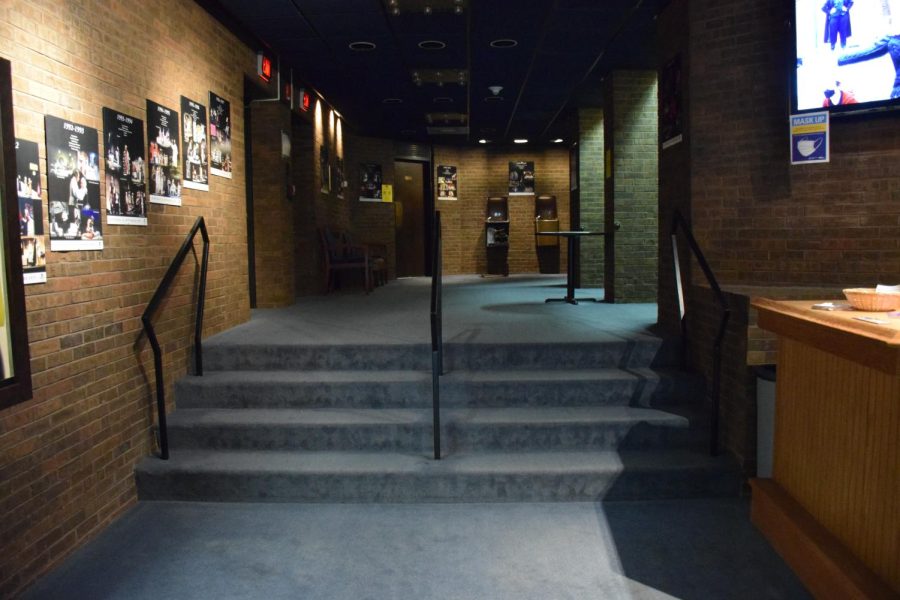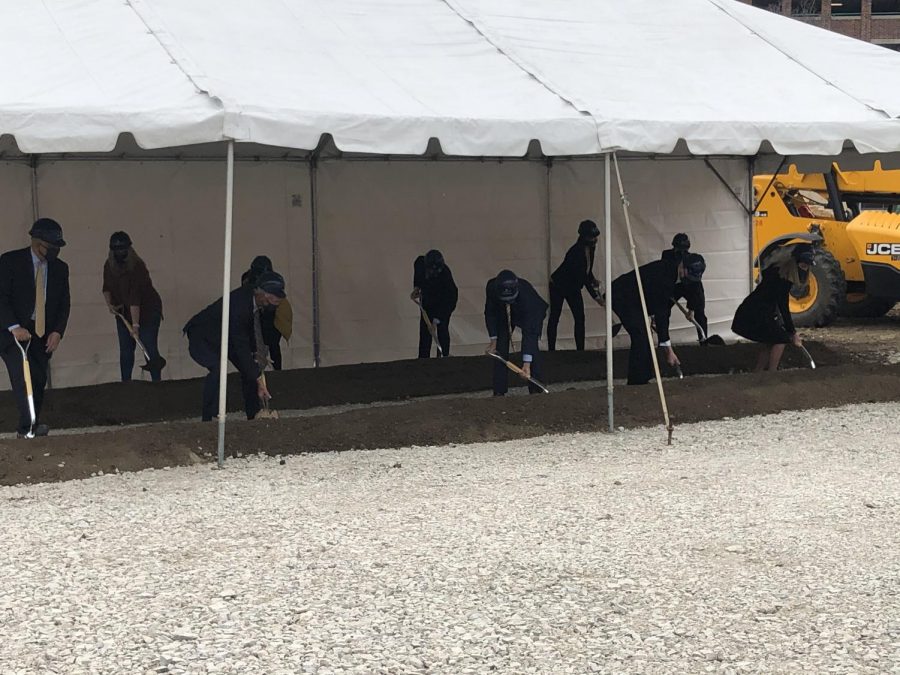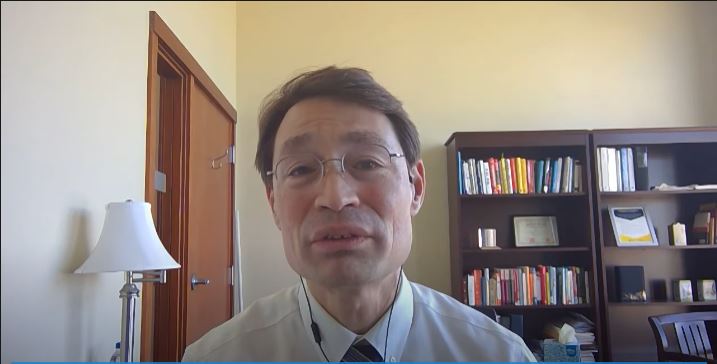Lora Strigens, university vice president for planning and facilities management, and Mike Jahner, university director of business operations, held a discussion last Wednesday that invited students and faculty to discuss sustainability.
Sustainability means providing a safe campus through social, environmental and economic needs, according to Marquette’s website. The goal is to ensure future generations are around to also meet these needs, according to the website.
Thus far in terms of sustainability, the university has converted the lighting in its parking structures to LED, installed a new stormwater basin which helps mitigate the amount of rainwater that flows into the sewer system and added green space and native trees, Strigens said.
Strigens and Jahner have been in charge of sustainability missions since campus sustainability coordinator Brent Ribble left the university, Strigens said.
She said the sustainability coordinator position will be filled.
“There are many areas of campus that have and will continue to take on important responsibilities related to sustainability. Academic programming, physical campus improvements, student engagement opportunities or sustainability conversations that tie to our mission are just a few examples of sustainability efforts that extend far beyond any one position,” Strigens said.
Sustainability has always had a strong grassroots presence on the campus, Strigens said. Once a new sustainability coordinator is hired, the university will be evaluating our overall campus sustainability plans to identify and prioritize efforts with greatest impact on campus environment, she said.
One idea came from Michelle Myenlieff, chair of biological sciences. She said students may not always be aware of the impact they have on our campus.
“A small way to start changing the culture would be to provide more education on campus about recycling and sustainability initiatives,” Myenlieff said. “For example, if one incorrect item goes in a recycling bin, it often means the entire bin cannot be recycled, but individuals are often unaware of the rules.”
She said she also believes signs could help educate students.
“Once signs are posted in areas where a lot of recyclable trash is generated such as in dining halls and dormitories, students can hold other students accountable by speaking up when items are disposed of incorrectly,” Myenlieff said.
Another idea proposed was solar panels being put around campus.
“We do, in fact, have PV panels on campus at Engineering Hall. They are original to the building, and technology has improved since, but we do have some,” Jahner said.
Strigens said sustainability is integral to Marquette’s Jesuit mission.
“Sustainability has a strong tie to our mission,” Strigens said. “Caring for our environment contributes to overall health and wellness — that of our physical surroundings but also for every individual. So when we talk about cura personalis, sustainable practices are part of that care for the whole person.”
“My approach has been and will continue to be to keep getting wins, small or large, and then tell anyone who will listen,” Jahner said. “We spent some time discussing a fantastic future state. I think all of that is achievable. We just need to keep moving in that direction.”
“Sustainability was one of the key working groups in our campus master plan, and is one of the themes of our strategic plan,” Strigens said. “That theme takes a broader view of sustainability to extend to financial and human capital as well as sustainability of our physical resources.”
During Mission Week in 2016, the theme was “earthjustice: committing to our sacred world.” Strigens said the campus community was challenged to connect ecological issues, explore research studies, projects, policies, and spiritual practices working to sustain life.
President of the SEAC and senior in the College of Arts & Sciences Laura Schmit encouraged students to get involved.
“Engage in your own community,” Schmit said. “One of my favorite environmental sayings is ‘Think Global and Act Local.’ I think this phrase is really powerful because if everyone is thinking sustainably at their community level, it brings us one step closer to solving many of the global issues.”
Schmit said students should join SEAC, which meets Wednesdays at 7 p.m in Cudahy 126.

